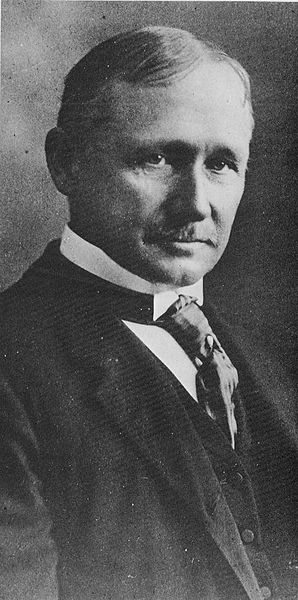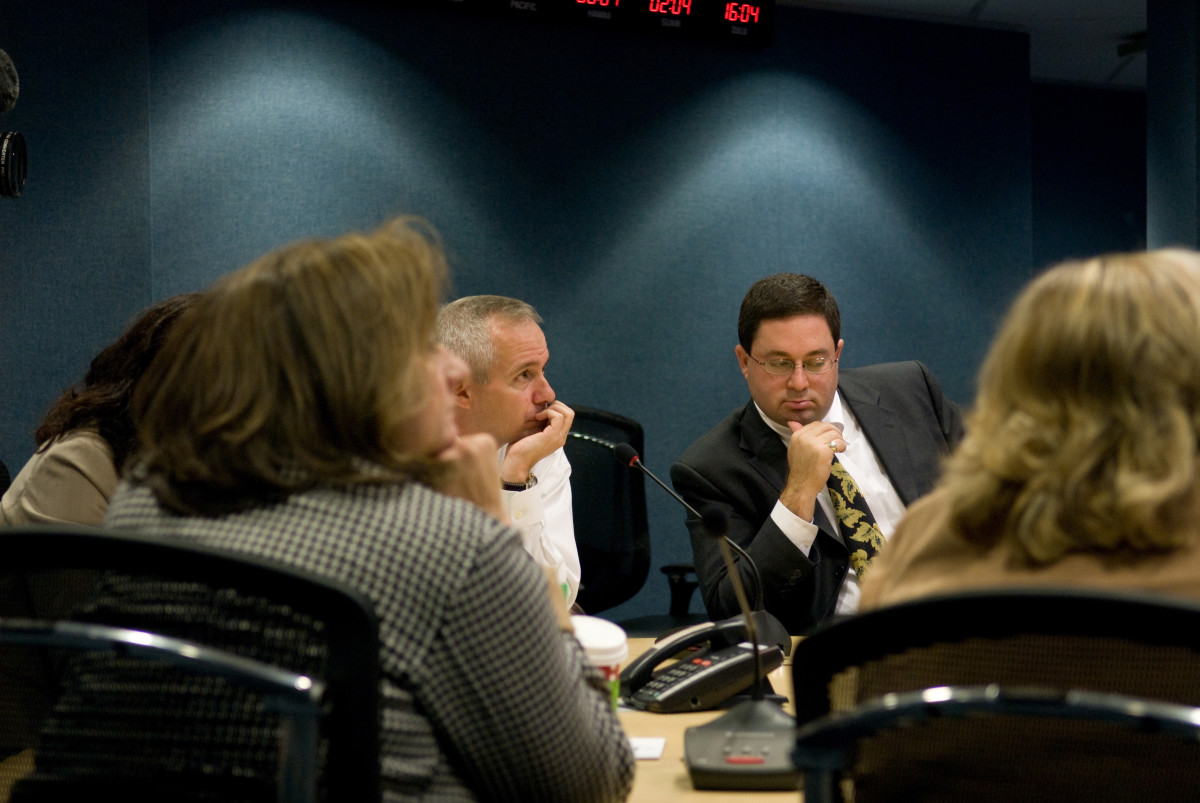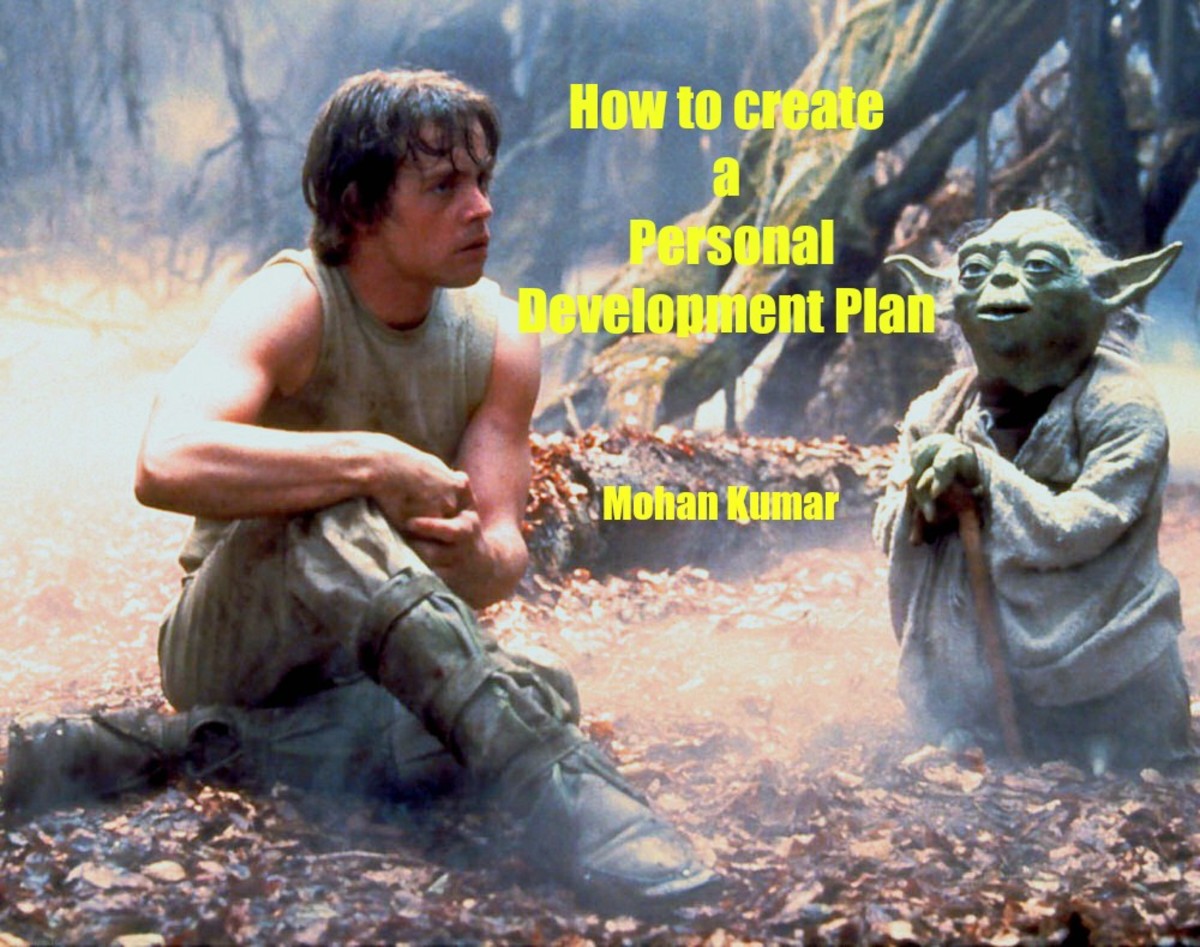How to Improve Your Health and Happiness as a Manager or Supervisor
F W Taylor.

Introduction.
The demands placed on Managers and Supervisors today are huge. "Getting more done with less" seems to be the #1 requirement. As a result, I see a growing number of those in the firing line of accountability in organisations of all types and sizes, coming under a great deal of work-related stress and personal discomfort.
If this is you, I hope that what I have put together here will be of assistance.
My intent is to briefly describe some of the competences, the knowledge, skills and attitudes, that were invaluable to me as a manager.
Get a better understanding of the environment you are working in.
Our scientific management, "efficiency" thinking tends to want organisations to run like a machine or a production line. However, whenever there are people working together, what we have is a social system. The larger the organisation, the more complex that social system becomes.
A great example of what I have in mind here is the education system, which is designed very much like a production line with "inputs" and "outputs" in mind. In theory, all children enter the school system with equal opportunity. The only limits to their academic success are intelligence and effort. However, many academics in the field of education see things differently.
What our children actually enter into at school is a highly complex social system. Some children thrive in it, but some do not. I was one of those who did not. My fears, doubts, insecurities within the "power" of the school system severely limited my academic ability. It wasn't until I went back into education as a mature student that my full potential was realised.
The Social Sciences can help us a great deal in work, because they help us get a much better understanding of the social (power) systems we are working in.
Here's a list of subjects I believe will be of great benefit (certainly to begin with):
- Scientific Management ("Taylorism").
- The Human Relations Movement (Elton Mayo).
- Organisation Design.
- Organisation Behaviour.
- Organisation Culture.
- The Learning Organisation.
"Cubicle Paradise" is not for everyone.

Get a better understanding of behavioural styles.
Between 2003 and 2006 I worked in local government. Within about two years I became "ill". After speaking with a friend who worked as a physiologist, it became apparent that I was suffering from sleep deprivation brought on by work-related stress.
A year or so after finishing that job I was working with a Career Coach. As part of that process I undertook a behavioural style assessment. Interpreting the results my coach exclaimed, "no wonder you were ill working in local government, your natural behavioural style does not fit with that kind of work system at all!".
I also found out that I am not at all suited to working in Sales. I wish I had known this before I spent over a decade trying!
Here's a brief outline of what the DiSC behavioural style assessment can tell us about our behaviour in an organisation:
- Dominance - outgoing and task-oriented. Perceives oneself as more powerful than the environment, where the environment is unfavourable.
- Influence - outgoing and people-oriented. Perceives oneself as more powerful than the environment, where the environment is favourable.
- Steadiness - reserved and people-oriented. Perceives oneself as less powerful than the environment, where the environment is favourable.
- Compliance - reserved and task-oriented. Perceives oneself as less powerful than the environment, where the environment is unfavourable.
And for behaviour in a specific type of job:
- Dominance - direct, firm, results-oriented, strong-willed, forceful.
- Influence - outgoing, lively, enthusiastic, optimistic, high-spirited.
- Steadiness - even-tempered, accommodation, humble, patient, tactful.
- Compliance - analytical, precise, systematic, private, reserved.
These are our "theoretical" behavioural styles. In practice, we will have our own unique "mix" or "blend" of styles, none of which can be said to be right or wrong, just different.
My conclusion is this. As a manager or supervisor, it is imperative to understand one's own behavioural style and to see how well it "fits" with the current job and the current work environment. I cannot stress this enough. Your health and your happiness are at stake.

Become a better influencer.
Dale Carnegie's principles for improved human relations have stood the test of time. If you haven't read, "How To Win Friends And Influence People" I highly recommend doing so. Better still, take the Dale Carnegie Course. I've done it twice now (in the early '80's and again in 1999) and I can't think of a better way to develop one's human relations skills.
The reason I feel so strongly about Managers and Supervisors becoming better influencers is this. If change could be brought about by telling people what to do, then the world would be a different place already.
The harsh reality is that change can never be brought about with command and control from the top-down. I saw this so clearly when evaluating community-based health and education programs. The people with the most to gain from a program were often the least likely to get involved.
I have found these to be true:
- Mission and vision dictated will always fail.
- To be effective, a top-down strategy requires a whole-hearted response from the ground-up.
I am convinced this is why so many Managers and Supervisors today are having such a difficult time. They are caught in the middle of dictates from the top and resistance from the bottom.
Therefore, Managers and Supervisors who develop their ability to influence others have a far better chance of persuading people to change. Influencing others is a fundamental quality of leadership that requires humility and integrity.
Here are some of Dale Carnegie's principles. Rate yourself and your organisation out of 10 for each one and then see if you need to take action to become a better influencer.
- Don't criticise, condemn of complain.
- Give honest and sincere appreciation.
- Arouse in the other person and eager want.
- Become genuinely interested in other people.
- Smile.
- A person's name in the sweetest sound to that person in any language.
- Be a good listener.
- Talk in terms of the other person's interests.

Become a better coach.
I believe that workplace coaching is fundamental to the staff development process. Without the ability to coach their team members, Managers and Supervisors are effectively working with one hand tied behind their back. Many individuals and organisations still believe that classroom-based training is sufficient to change work-related behaviour. However, there has been a great deal of evidence over many decades to show otherwise, especially when developing soft skills such as communication, teamwork and problem solving.
The "transfer of training" problem, also known as the "knowing-doing gap" has long been identified as a major failure of the traditional classroom-based training approach. The chances of anyone recalling from memory much more than about 10 percent of what they have seen and heard in a classroom is very, very low.
Therefore, Managers and Supervisors who know how to coach their staff to better job performance by creating opportunities to apply new knowledge will have a great advantage and an easier life at work.
Here are some core values I believe are fundamental to the coaching process:
- Purpose - helping individuals set personally motivating and inspiring goals.
- Direction - helping individuals make plans to overcome obstacles and achieve their objectives.
- Integrity - sticking with an individual all the way through the learning process no matter what.
I am convinced that coaching can help get people working like a pit crew; the right people in the right place at the right time doing the right things in the right way.
Create a better environment for use of soft skills.
Most, if not all organisations are built for stability. They are not designed or built with change in mind. Typically, an organisation will look like this:
- Hierarchy.
- Formal use of power and authority.
- Routine and mechanistic ways of getting things done.
- Predominance of one-way communication.
This work "system" can be seen everywhere. It is great for maximising the efficient use of time, money and resources. But it is hopeless at readily facilitating change. This system stifles the use of soft skills such communication, teamwork and problem solving and it completely kills creativity and innovation.
In a "creativity and innovation" training session I heard one Supervisor exclaim, "That's the first thing they knock out of you!".
Each of the subject areas I have briefly described above had in mind the goal of creating an environment for the more effective development use of soft skills. I really cannot emphasise the importance of this enough.
Without highly effective communication, teamwork and problem solving at work in their teams, Managers and Supervisors are pretty much condemned to a life of heartache and frustration.
What I have in mind here is creating work environment that is, in many respects, totally opposite to the "system". Instead of a "production line" we have and "ant colony".
What we can learn from ants is that without any kind of leader, ruler or overseer, each ant knows exactly what to do for the good of the colony at any given time. Ants are said to be one of the most successful specifies on the planet.
Again, we can go back to the pit crew. When they swing into action they know exactly what to do to get a race car back into tip-top condition and back out into the race.
Creating an environment for using soft skills requires:
- No hierarchy.
- Use of interpersonal influence (normative power - people do things because they want to not because they have to)
- "Organic" ways of working.
- Continuous dialogue.
Final thoughts.
Many Managers and Supervisors today are caught between a rock and a hard place, between the demands of the work system and the needs of people.
I hope that this article will have outlined enough to give you some food for thought and perhaps open the way to some insights into how you can improve your health and happiness.






